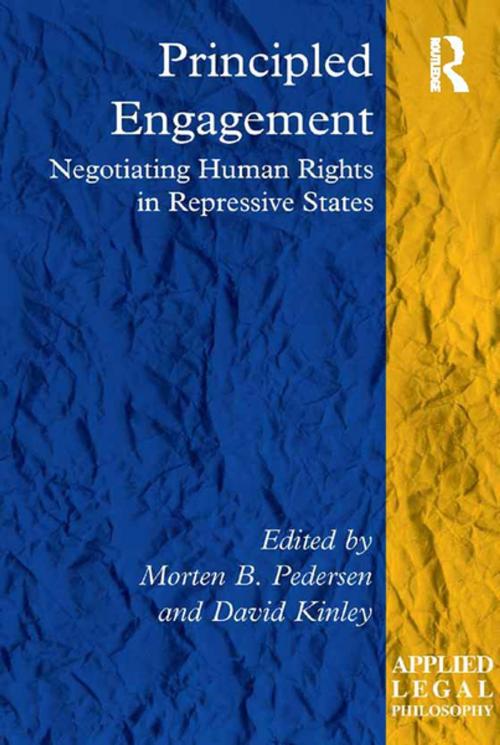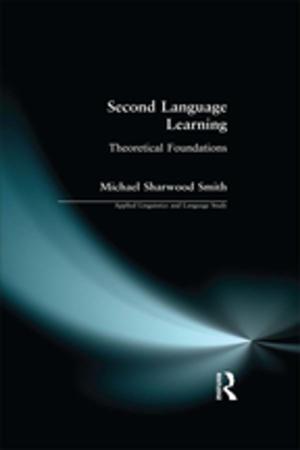Principled Engagement
Negotiating Human Rights in Repressive States
Nonfiction, Social & Cultural Studies, Political Science| Author: | ISBN: | 9781317075905 | |
| Publisher: | Taylor and Francis | Publication: | April 8, 2016 |
| Imprint: | Routledge | Language: | English |
| Author: | |
| ISBN: | 9781317075905 |
| Publisher: | Taylor and Francis |
| Publication: | April 8, 2016 |
| Imprint: | Routledge |
| Language: | English |
What is the best way to promote human rights in grossly repressive states when neither sanctions nor trade and investment have much effect? This book examines the concept of Principled Engagement as an often overlooked alternative strategy for alleviating human rights violations and improving the framework of human rights protection. Beginning with an explanation of the concept and a comparison with the alternatives of Ostracism and Business as Usual, the book argues that Principled Engagement deserves greater attention and explains how it works and what factors contribute to its success or failure. Case studies provide a rare scholarly inquiry into the effectiveness of the basic underlying ideas and analyse and assess specific cases, including from China, Burma, Zimbabwe and Liberia. Written by leading academics and practitioners, the book takes a general, comparative approach to human rights policy that teases out broad lessons about what works. Ultimately, this is a study that challenges scholars and practitioners alike to take a fresh look at how human rights are promoted internationally.
What is the best way to promote human rights in grossly repressive states when neither sanctions nor trade and investment have much effect? This book examines the concept of Principled Engagement as an often overlooked alternative strategy for alleviating human rights violations and improving the framework of human rights protection. Beginning with an explanation of the concept and a comparison with the alternatives of Ostracism and Business as Usual, the book argues that Principled Engagement deserves greater attention and explains how it works and what factors contribute to its success or failure. Case studies provide a rare scholarly inquiry into the effectiveness of the basic underlying ideas and analyse and assess specific cases, including from China, Burma, Zimbabwe and Liberia. Written by leading academics and practitioners, the book takes a general, comparative approach to human rights policy that teases out broad lessons about what works. Ultimately, this is a study that challenges scholars and practitioners alike to take a fresh look at how human rights are promoted internationally.















